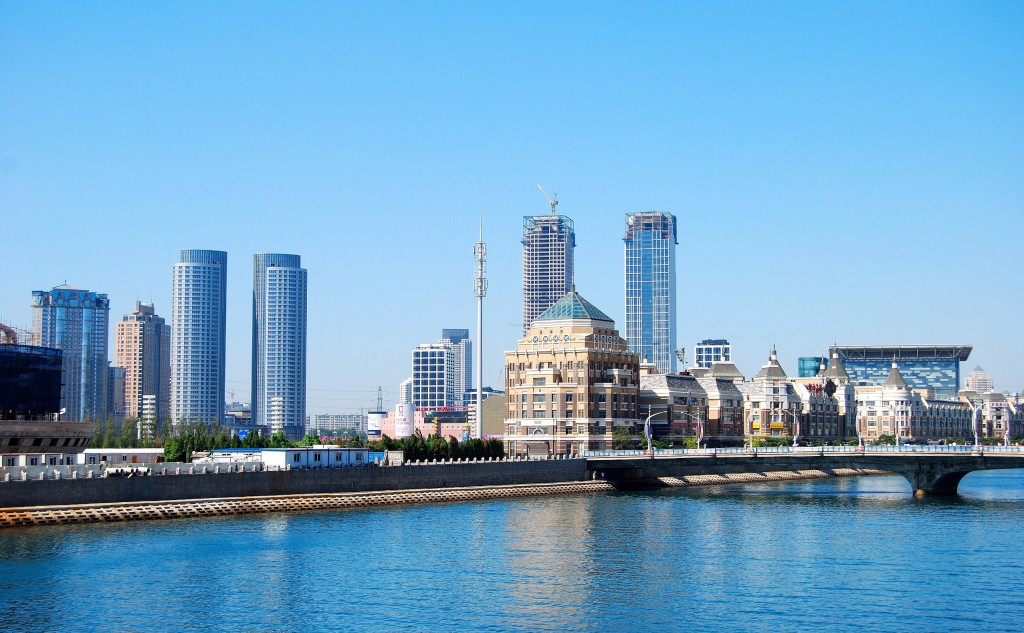 The biggest free trade port in Northern China, Dalian is a modernised international shipping metropolis serving as a gateway to Beijing and Tianjin. In this article, Rainy Yao from Dezan Shira & Associates takes a look at this ‘National Garden City’ with abundant commercial opportunities.
The biggest free trade port in Northern China, Dalian is a modernised international shipping metropolis serving as a gateway to Beijing and Tianjin. In this article, Rainy Yao from Dezan Shira & Associates takes a look at this ‘National Garden City’ with abundant commercial opportunities.
Economic Overview
As the principle city in Liaoning’s coastal economic belt, Dalian has made full use of its geographical advantages and leads the region’s economic development.
In 2013, Dalian’s GDP exceeded RMB 765.08 billion and grew at an annual rate of nine per cent. The city’s primary industry contributed RMB 47.76 billion (4.8 per cent growth) and its secondary industry RMB 389.2 billion (9.4 per cent growth). The remaining RMB 328.12 billion came from the service sector, which grew 9.1 per cent annually. The financial industry made a large contribution to the service sector, by the end of 2013, 639 finance institutions had been set up in the city.[1]
The industrial sector plays a vital role in the city’s rapid economic growth; the city’s gross industrial output reached RMB 343.86 billion (10 per cent growth) in 2013. As an industrial base, Dalian is a major player in almost all categories of industries including:
- shipbuilding;
- machinery manufacturing;
- petroleum refining;
- biological engineering; and
- digital technology.
Known as the ‘National Garden City’, Dalian is also one of the most popular tourist destinations in China. Tourism brought in close to RMB 90.08 billion in 2013 with over 53.3 million domestic and foreign visitors.
Development Zones
Dalian’s main development zones include:
Dalian Economic and Technological Development Area
Dalian Development Area (DDA), located in Jinzhou District, is a state-level economic and technological development area that was approved by the government in 1984. With a solid industrial foundation and a comprehensive supply chain, it has attracted more than 2,300 foreign-invested enterprises (FIEs) to date. Major industries include petrochemical, automobile & components, equipment manufacturing and light industry.[2]
Dalian High-tech Zone (DHTZ)
Approved in 1991, the DHTZ is the first national, innovation-oriented, high-tech zone. It covers an area of 153 square kilometres with more than 4,700 registered enterprises; 90 per cent of all the high-tech enterprises in Dalian are established here. The leading industry clusters in the DHTZ are software and service outsourcing.[3]
The Dalian Free Trade Zone (DFTZ)
The largest free trade zone in China, the DFTZ, with an area of 251 square kilometres, was established in 1992. It is located alongside the Yellow Sea Coast and consists of the Dayao Bay Bonded Port Area, the Bonded Zone, the Dalian Export Processing Zone A, Shipping Centre, and Dalian Automotive Logistics Park.[4] Major industrial clusters include processing, trade, related logistics and warehousing.[5]
Dalian Export Processing Zone (DEPZ)
The DEPZ, covering 2.95 square kilometres, was approved in 2000. Major industries include home appliances, light industry and machinery.[6] It is divided into two areas, the Export Processing Zones A and B, one of which is located in the DFTZ.
Dayao Bay Bonded Port Area
Approved by the government in 2006, the Dayao Bay Bonded Port covers an area of 6.88 square kilometres. It is expected to be a world-class, bonded cold-chain logistics base by 2015.[7]
Dalian Changxing Island Port Industrial Zone
Approved as a state-level development zone in 2010, this is the second cooperative project between China and Singapore after the Suzhou Industrial Park.[8] The Island Zone covers an area of 349.5 square kilometres, featuring industrial clusters in port logistics, shipbuilding and new high technology.[9]
Investment opportunities
Dalian’s government has rolled out various policies to support foreign investment, particularly for enterprises who set up in the special economic zones. According to the Catalogue of Encouraged Foreign Investment Industries for Dalian,[10] the following sectors are encouraged for foreign investment in China:
- service outsourcing
- modern services
- municipal infrastructure
- manufacturing
Specifically, since the 1990s, Dalian has been working to build itself into a leader in IT and software development, with staunch support from Beijing. Known as a national software export base, Dalian encourages foreign investment in the IT industry.[11]
Preferential tax policies
According to the preferential tax policies[12] released by the DFTZ, eligible goods, such as raw materials, spare parts and other materials for processing export products, will be bonded within its confines. Furthermore, transit goods and goods stored in the Zone will be treated as bonded goods.
Goods imported into the DFTZ are exempt from import tariffs and import linkage tax if they meet the following conditions:
- Machinery, equipment and other construction materials used in productive infrastructure construction projects.
- Production and management equipment for DFTZ enterprises.
- A reasonable quantity of office supplies and maintenance parts used by the DFTZ enterprises.
Dezan Shira & Associates is a specialist foreign direct investment practice, providing corporate establishment, business advisory, tax advisory and compliance, accounting, payroll, due diligence and financial review services to multinationals investing in emerging Asia. Since its establishment in 1992, the firm has grown into one of Asia’s most versatile full-service consultancies with operational offices across China, Hong Kong, India, Singapore and Vietnam as well as liaison offices in Italy and the United States.
For further details or to contact the firm, please email china@dezshira.com or visit www.dezshira.com.


Recent Comments